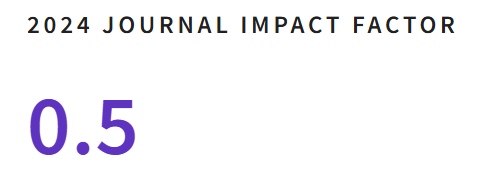Evaluation process
All the works sent to RIVAR, which have passed the pre-evaluation carried out by the Advisory Editorial Board, are submitted to peer evaluation (Referral Committee) as double-blind, based on the Evaluation guideline approved by the Scientific Councils. The Referral Committee is made up of both national and foreign specialists with a vast and recognized academic career.
The author has the right to express if he has a conflict of interest with any person, so that he is not appointed as an evaluator of his work. The journal undertakes to respect the confidentiality of this information. Only justified objections will be considered to individuals, not to institutions or research units. RIVAR will try to respect requests for disqualification, except in exceptional cases in which it is essential to have the opinion of a specialist.
Commitment to reciprocity. RIVAR does not charge any fees or charges for publishing articles. The works are evaluated by peers with a double-blind system. The task of evaluating is ad honorem and represents a solidarity contribution from the academic community. Also, RIVAR authors are requested to contribute to this process as an act of reciprocity with the journal. For this reason, the authors will be registered on the RIVAR platform as authors and as reviewers. By submitting an article to this journal, they assume the commitment to contribute to the academic community as reviewers of future articles in their area of specialty. They will provide this service for three years, with the revision of three articles. To formalize this commitment, click on this box (please add box)
Anonymity for evaluation. When sending the article to RIVAR, two versions must be sent: one complete, with data of authors and research projects*, and the other blind, without that information. The name of both files will be partially the same, but with differences. In both cases, a conceptually representative word will be used (for example: "Artificial Intelligence" or "Heritage Vineyards". Then the differential word will be added: “blind” or "author". The first file will have the name "Artificial Intelligence-blind". And the second one will be called "Artificial Intelligence-author". The blind version must avoid any reference that allows to know the identity of the authors, such as expressions that refer to other works by the same author, etc. *Financing: the sources of financing must be mentioned. It is particularly important to indicate the research project within which the article has been prepared and its corresponding data.
Once the reports of the blind peers have been received, the Editorial Board will make the final decision on approval or rejection of publication through the following opinions:
- The publication is approved.
- The publication is approved taking into account and reworking the aspects observed by the reviewers.
- The publication of the article is rejected.
If the opinion of the evaluators observes some corrections, the author will have a period of thirty working days to make the requested adjustments. If this deadline is exceeded, the contribution will be subject to the decisions determined by the Editorial Board based on the publication times of the journal. In turn, it should be noted that the approval of a work submitted for evaluation does not determine its immediate publication.
The editor or general editor of the journal will acknowledge receipt of the originals within fifteen working days of their deposit in the Corrected Article section of the OJS repository.
The arbitration system implies that each article is submitted to the evaluation of two external members of the publishing institution. They will have a period of thirty (30) working days for the evaluation. If eventually the evaluation turns out to be dichotomous, a third evaluator is proposed to decide on the proposal.
The authors are requested to attach with the submission of the proposal a signed document transferring the patrimonial rights to RIVAR. If the manuscript is not accepted for publication this assignment is void and the manuscript released for publication. Once published in RIVAR, the article can be republished, totally or partially, indicating that it was originally published in RIVAR.








